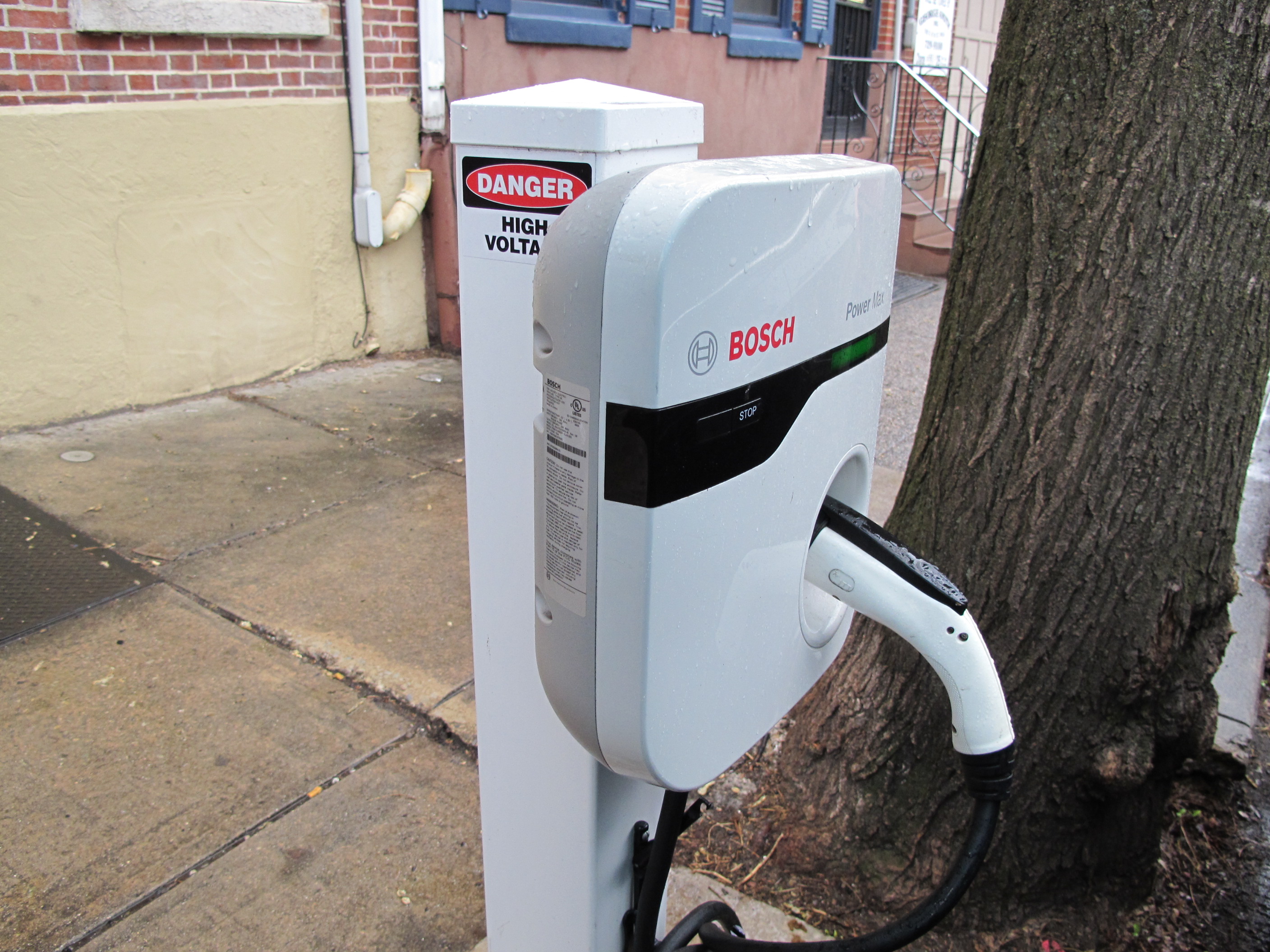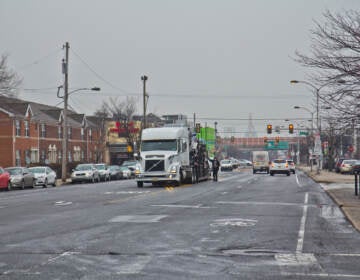City announces task force charged with promoting electric car ownership in Philly

On Friday, Mayor Jim Kenney and City Council announced the creation of a joint task force to study ways Philadelphia can encourage — or at least not impede — city residents’ adoption of electric vehicles.
All-electric vehicles and plug-in hybrids require outlets in order to recharge their batteries, which take hours to fully reload. In suburban settings, this isn’t a problem, as most homes have driveways and garages. But in a city like Philadelphia, where off-street parking is relatively rare, it can be a logistical nightmare.
City Council pulled the plug on Philadelphia’s prior attempt at addressing that issue, which allowed electric vehicle (EV) owners to convert on-street parking spots into EV-only spots and build a curbside electrical socket to recharge their cars.
While just 68 residents took advantage of the program, that was enough to raise the ire of some of their neighbors, who complained to Councilmembers Mark Squilla and David Oh about what they saw as unfair treatment. Squilla and Oh co-sponsored legislation to suspend the old program for a year, promising to replace it with something better.
That’s the new Electric Vehicle Task Force’s mission: Come up with something better.
“The old program was a good program to get electric vehicles jump started in the city, but its not something that can be scaled up everywhere,” said Chris Puchalsky, director of policy and strategic initiatives for the Mayor’s Office of Transportation and Infrastructure Systems (OTIS). “There just isn’t enough parking spaces in front of everyone’s house.”
“We want to try to find other ways where we can encourage the growth of electric vehicles and understand their needs without creating other problems,” he added.
The task force includes representatives from OTIS, SEPTA, the Streets Department, the Office of Sustainability, Licenses and Inspections, the PPA, Squilla, Oh, and three residents who own EVs. OTIS It expects to issue a report listing recommendations for City Council and the Kenney Administration sometime in early 2018.
“We do have city council on task force so they’re plugged in from the very beginning — pun not intended — so that they can understand and be on board with any of the consensus recommendations the white paper makes,” said Puchalsky.
The task force doesn’t have any EV industry representatives, but that’s by design, said Puchalsky: The report’s recommendations will likely include contracting opportunities with the city. A company participating on the task force would likely lead to a conflict of interest.
Instead, OTIS issued a request for information, asking for detailed information on different types of EV charging infrastructure, universal charging stations, potential revenue models for independent charging stations, and ways of encouraging “smart charging” or charging during off-peak hours so to lessen the strain on the power grid.
To be successful, the task force will need to offer an EV charging solution that doesn’t significantly reduce the supply of what many Philadelphians consider the city’s most valuable, and increasingly scarce, natural resource: free on-street parking.
Otherwise, it’s unlikely that City Council will put the report’s recommendations into law.
WHYY is your source for fact-based, in-depth journalism and information. As a nonprofit organization, we rely on financial support from readers like you. Please give today.




